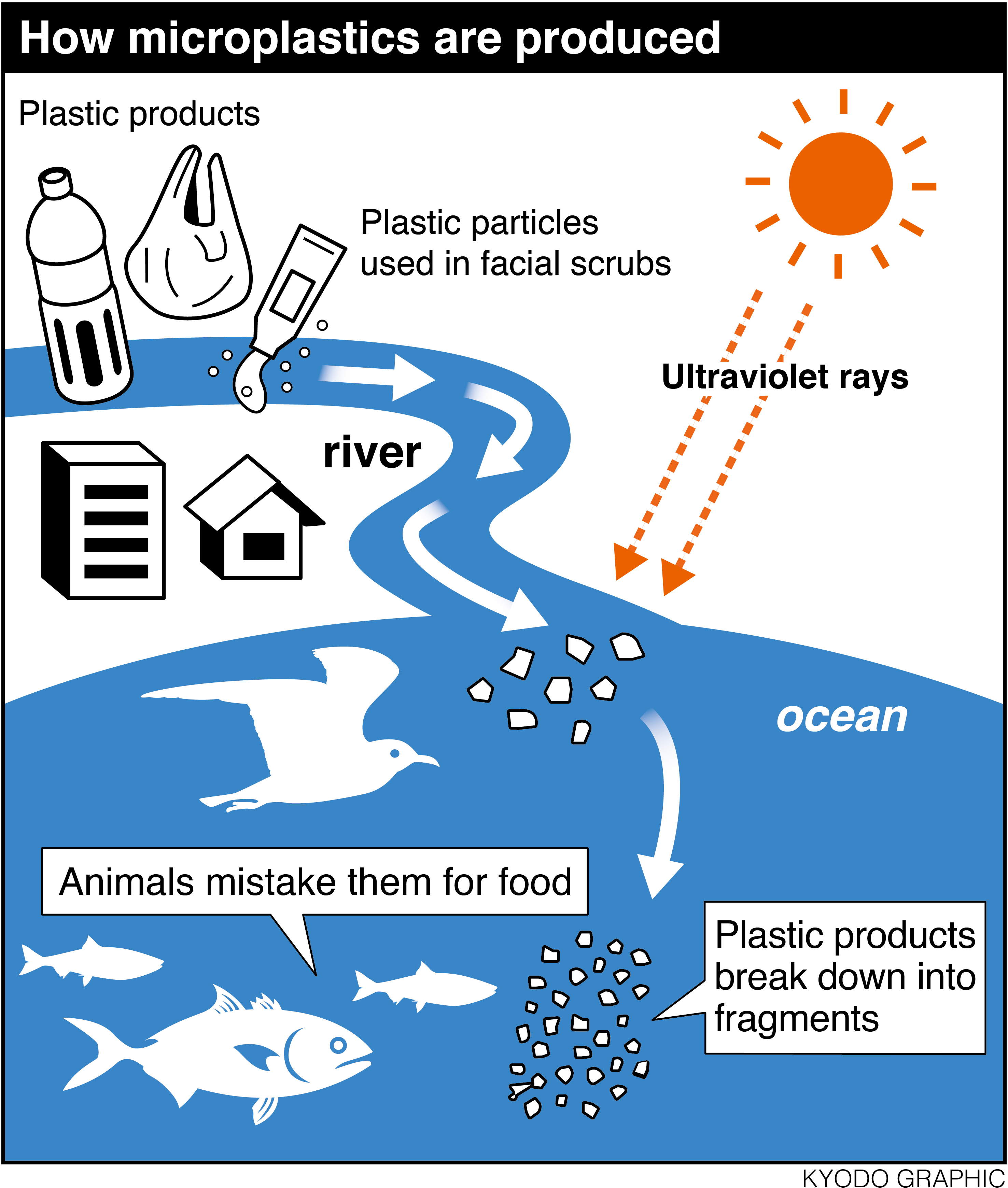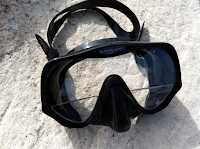It isn't a new problem. This is something that has been causing concern for many years now however, recently, it has started to make its way into the spotlight once again.
Some of you may remember a few years ago, we wrote a blog regarding a project that was being developed to help clean the garbage out of our Oceans and while this is a great initiative and we have to clean up the mess we have created, we also have to stop putting that rubbish there in the first place.
 |
| http://www.japantimes.co.jp |
It is a scary fact that plastic waste in the Pacific covers an area of almost 15 million Kilometres squared (that is not far off the size of Russia).
An estimated 8 million tonnes of plastic is dumped into the oceans every year and this plastic pollution is adversely affecting all kinds of wildlife, their homes and habitats.
Approximately 1 in 3 species of marine mammals have been found trapped and entangled in marine litter while fish in the North Pacific are believed to ingest between 12 and 24 thousand tonnes of plastic every year.
Of course, if the fish are ingesting it, the plastic will make its way up the food chain and it finds itself in humans too. We are at the top! This is our problem and we all need to find a way to start reducing our dependencies on plastic.
Here are 5 simple, everyday things you can do personally to help reduce plastic in our oceans
1. Buy Re-useable Bags
There is a reason the world is moving away from plastic bags for our shopping. These bags have a working life of around 15 minutes but can take a whopping 1000 years to degrade.
More than 1 million plastic bags are being used every minute.
Most shops will now offer a "Bag for Life" usually made from materials other than plastic, which can be re-used over and over again and are much more environmentally friendly.
2. Say No to Straws

Again, straws are one of those items that are so popular and yet so unnecessary. If you cannot drink from the glass, consider investing in a reusable stainless steel or glass straw. These single use, trow away unessential items are a massive contributor to plastic pollution.
3. Invest in a Re-Usable Cup
If, like me, you cannot survive without your morning coffee but often have to drink it on the go or if you are a frequent visitor to coffee shops like Costa or Starbucks, have a think about buying your own refillable cup to help reduce waste.
Also, if you are always buying bottles of juice, water or pop to carry around with you on the go, a refillable stainless steel bottle will reduce plastic waste whilst keeping your drink cool. Win Win.
4. Ditch the Disposable
Whether you are talking about your cutlery, plates, razors or lighters and everything in between, disposable is not a good adjective.

We have become a throw away society with so many things that could be reused being discarded for convenience. Hole in your sock? Throw it away. In years gone by, it would have been stitched and lasted another 10 years.
Ok, maybe an exaggeration but the point remains. Where once it was worth mending, fixing and revamping, these days it seems to be easier to just replace. Think about the long term consequences and the next time you throw something away because it is "just as cheap to buy a new one", consider where it will end up and what that can mean for the environment, the wildlife, you and your family and friends.
Is it still not worth repairing?
 5. RECYCLE
5. RECYCLE
In this day and age, this should really be a given but if you do have to use plastic (and most of us do,
it is everywhere and in practically everything) pay some attention to what you do with it when finished.
Most items can be recycled these days and most countries have some means of recycling your plastic, cardboard and glass, at a minimum. If the council doesn't offer special recycling pick ups with your refuse collection then make the effort to find out where you nearest recycling point is and take your waste there.
If we cannot eliminate it, we can at least re-use it and reduce the amount of new plastics that are being produced.
I recently read an Ancient Indian Proverb that I think fits very well here and is certainly worth bearing in mind.
We do not inherit the Earth from our Ancestors. We Borrow it from our Children







